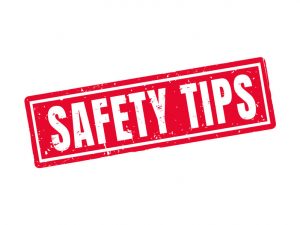
If you have knowledge of how electrical circuits work, you might want to consider completing a few DIY projects yourself, rather than calling in the pros. However, while avoiding an electrician can save you some money, it can also be a lot more dangerous, depending on the complexity of the project and on your own knowledge and experience as an amateur electrician.
As a result, it’s important to take the main safety measures into account, before getting to work on anything. Keeping safe should be your first priority, and the tips presented below might even save your life someday.
- Your Electrician Equipment
Before starting out on any DIY project that has to do with electrical appliances, outlets or wiring, you have to make sure you have the right kind of equipment and gear at the ready. This should include safety goggles and gloves, as well as electrical equipment to test live wires, measure high voltage and current, and fix faulty wiring.
Once you get to work, there’s nothing to keep a poorly insulated cable or a badly repaired tool from backfiring on you. So make sure you check the integrity of your tools and equipment each time you start working on a DIY project. Moreover, it might also be essential to double check your equipment even after you checked it once. That way, you can be sure that you’ll only take properly functioning tools with you.
- Be Careful with Live Electricity!
Never work on a live electrical circuit before unplugging all the devices and wires you’re working on. If you’re fixing a light, make sure you disconnect the correct circuit breakers before proceeding, and that you’ve already double checked to see if the light can still be turned on before continuing your work.
Always use voltmeters and ammeters for this purpose. Checking the amount of voltage and current that runs through the circuit is essential, especially when working on lighting fixtures and wiring that plugs straight into the grid, where the power can reach lethal levels.
Also, make sure you protect yourself even while working on unplugged appliances or wires. You can never be too sure, especially if the circuit contains any high value capacitors that could discharge a sizable amount of current when you least expect them to. As always, if you do not know what you are doing, call on professional Centennial electrical contractors to do the job safely and correctly.
- Avoid Working in Damp Conditions
If your home was just flooded or there is a lot of water on the floor, avoid working on any electrical circuits until your home dries, or call and ask for the help and advice of a license electrician.
Any expert can tell you that water and electricity don’t mix well, and in some cases their combination can even be lethal. So avoid it and make sure you take the right safety decisions to protect your family as well, if your home is flooded.
Calling an electrician, even if just to ask for advice and support, is definitely recommended in all the cases presented here. Whether you’re planning on working on a smaller project, or planning to rewire your entire home, a licensed expert’s help will certainly be invaluable.